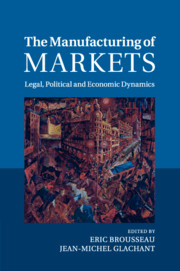91 results
Examining the relationship between triage acuity and frailty to inform the care of older emergency department patients: Findings from a large Canadian multisite cohort study
-
- Journal:
- Canadian Journal of Emergency Medicine / Volume 22 / Issue 1 / January 2020
- Published online by Cambridge University Press:
- 13 November 2019, pp. 74-81
- Print publication:
- January 2020
-
- Article
-
- You have access
- HTML
- Export citation
What do community paramedics assess? An environmental scan and content analysis of patient assessment in community paramedicine
-
- Journal:
- Canadian Journal of Emergency Medicine / Volume 21 / Issue 6 / November 2019
- Published online by Cambridge University Press:
- 01 August 2019, pp. 766-775
- Print publication:
- November 2019
-
- Article
-
- You have access
- HTML
- Export citation
Why Are Modern Bureaucracies Special? State Support to Private Firms in Early Eighteenth-Century France
-
- Journal:
- The Journal of Economic History / Volume 77 / Issue 4 / December 2017
- Published online by Cambridge University Press:
- 24 November 2017, pp. 1144-1176
- Print publication:
- December 2017
-
- Article
-
- You have access
- HTML
- Export citation
Comparison of functional outcomes in elderly who have sustained a minor trauma with or without head injury: a prospective multicenter cohort study
-
- Journal:
- Canadian Journal of Emergency Medicine / Volume 19 / Issue 5 / September 2017
- Published online by Cambridge University Press:
- 09 September 2016, pp. 329-337
- Print publication:
- September 2017
-
- Article
-
- You have access
- HTML
- Export citation
Part VI - The daily adjustment of market technology
-
- Book:
- The Manufacturing of Markets
- Published online:
- 05 July 2014
- Print publication:
- 22 May 2014, pp 353-469
-
- Chapter
- Export citation
Copyright page
-
- Book:
- The Manufacturing of Markets
- Published online:
- 05 July 2014
- Print publication:
- 22 May 2014, pp vi-vi
-
- Chapter
- Export citation
Index
-
- Book:
- The Manufacturing of Markets
- Published online:
- 05 July 2014
- Print publication:
- 22 May 2014, pp 512-523
-
- Chapter
- Export citation
Part V - The challenge of balancing public and private ordering
-
- Book:
- The Manufacturing of Markets
- Published online:
- 05 July 2014
- Print publication:
- 22 May 2014, pp 289-352
-
- Chapter
- Export citation
Contributors
-
-
- Book:
- The Manufacturing of Markets
- Published online:
- 05 July 2014
- Print publication:
- 22 May 2014, pp xiii-xxii
-
- Chapter
- Export citation
The Manufacturing of Markets - Half title page
-
- Book:
- The Manufacturing of Markets
- Published online:
- 05 July 2014
- Print publication:
- 22 May 2014, pp i-iv
-
- Chapter
- Export citation

The Manufacturing of Markets
- Legal, Political and Economic Dynamics
-
- Published online:
- 05 July 2014
- Print publication:
- 22 May 2014
Part II - Path dependency and political constraints in establishing property rights systems
-
- Book:
- The Manufacturing of Markets
- Published online:
- 05 July 2014
- Print publication:
- 22 May 2014, pp 79-142
-
- Chapter
- Export citation
Part I - Public and private complementarities in securing exchange
-
- Book:
- The Manufacturing of Markets
- Published online:
- 05 July 2014
- Print publication:
- 22 May 2014, pp 11-78
-
- Chapter
- Export citation
1 - Introduction
-
-
- Book:
- The Manufacturing of Markets
- Published online:
- 05 July 2014
- Print publication:
- 22 May 2014, pp 1-10
-
- Chapter
- Export citation
Part III - The political origin of competition
-
- Book:
- The Manufacturing of Markets
- Published online:
- 05 July 2014
- Print publication:
- 22 May 2014, pp 143-222
-
- Chapter
- Export citation
Contents
-
- Book:
- The Manufacturing of Markets
- Published online:
- 05 July 2014
- Print publication:
- 22 May 2014, pp vii-ix
-
- Chapter
- Export citation
Figures
-
- Book:
- The Manufacturing of Markets
- Published online:
- 05 July 2014
- Print publication:
- 22 May 2014, pp x-xi
-
- Chapter
- Export citation
Acknowledgments
-
- Book:
- The Manufacturing of Markets
- Published online:
- 05 July 2014
- Print publication:
- 22 May 2014, pp xxiii-xxiv
-
- Chapter
- Export citation
The Manufacturing of Markets - Title page
-
-
- Book:
- The Manufacturing of Markets
- Published online:
- 05 July 2014
- Print publication:
- 22 May 2014, pp v-v
-
- Chapter
- Export citation
Part IV - The myopia of the public hand
-
- Book:
- The Manufacturing of Markets
- Published online:
- 05 July 2014
- Print publication:
- 22 May 2014, pp 223-288
-
- Chapter
- Export citation



